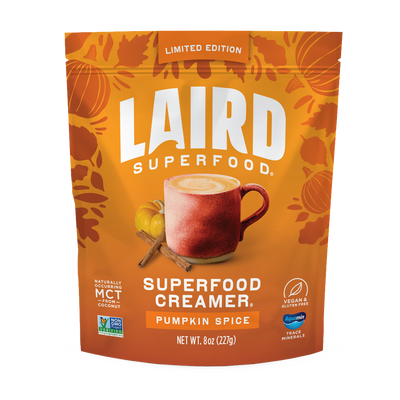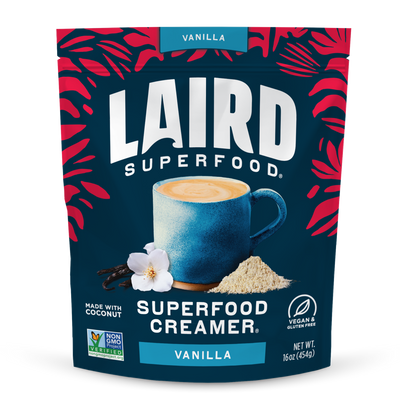FDA Removes Coconut From Major Food Allergens List: In a Nutshell
Posted on February 14, 2025

For the last twenty years, the US Food and Drug Administration (FDA) has categorized coconut as a tree nut and, therefore, a major food allergen. As of January 2025, coconut lovers can move beyond that stigma ― and go truly "cocoNUTS" ― because the FDA has removed coconut from their major food allergens list.
Whether you enjoy dried coconut meat for its taste, protein, and fiber content or love the hydrating benefits of coconut water, this means US consumers may see a lot more coconut products on the market. Hooray!
Still, take note: you may now find coconut in products that previously didn't include it in their recipes. That's important if you live with food allergies of any type. You should pay close attention to food labels, even for products you've enjoyed for years, and assume "safe."
Is Coconut a Major Food Allergen?
No. As of January 2025, coconut is no longer considered a major food allergen and does not need to be listed as one on food labels.
That means US consumers will probably see more coconut products on the market, but those with allergies must pay close attention to ingredient lists moving forward. Still, 14 major food allergens will be listed on product labels.
Which Major Food Allergens Will Be on Food Labels in 2025 and Beyond?
According to FDA.gov, the current list of food allergens includes:
- Milk (from cows, goats, etc.)
- Eggs (including chicken, turkey, quail, etc.)
- Fish (like bass, cod and trout)
- Crustaceans & shellfish (lobster, crab, mussels, and shrimp)
- Tree nuts (almonds, walnuts, pecans, but NOT COCONUTS)
- Peanuts (which do not grow on trees)
- Wheat (found in breads and cereals)
- Soybeans (tofu)
- Sesame (seeds and oils)
Now, let's explore the changes to food allergen labeling requirements and how they may affect consumers trying to live their healthiest lives.
Changes to Food Allergen Labeling Requirements

The FDA has now clarified that only 12 types of tree nuts are considered allergens for food labeling purposes.
While coconut is no longer on the list, those 12 potential allergens include:
- Almond
- Black walnut
- Brazil nut
- California walnut
- Cashew
- Hazelnuts (aka filberts)
- Japanese walnut (aka heartnut)
- Macadamia nut
- Pcan
- Pine nut (pinion, pinion nuts)
- Pistachio
- English / Persian walnut
Remember, this guidance is provided by the FDA, which evaluates the public health importance of food allergens.
How Does the FDA Decide if an Ingredient is a Major Food Allergen?
The FDA continually assesses and reviews medical information and surveys by medical professionals and US consumers when deciding if a food ingredient should be considered a major food allergen.
The agency considers four scientific factors to evaluate the public health importance of a new or non-listed food allergen:
- Evidence of IgE-mediated food allergy
- Prevalence
- Severity
- And allergic potency
As new foods come to the US, ingredient lists evolve, and allergy risks increase, the FDA continues to evaluate the public health importance of food allergens on a case-by-case basis, taking those factors into account.
The FDA also routinely inspects and analyzes foods to test for ingredients that may be considered food allergens. Then, they ensure the manufacturers follow food allergen labeling requirements.
More nonbinding recommendations — in other words, not exactly laws — provided by the FDA are found in the publication "Evaluating the Public Health Importance of Food Allergens Other than the Major Food Allergens Listed in the Federal Food, Drug and Cosmetic Act; Guidance for FDA Staff and Interested Parties." Interested parties can submit more information to the survey provided in that document.
Implications: What Consumers and Manufacturers Need to Know
Removing coconut from the list of major food allergens will likely impact both food labeling and allergen claims made by consumers.
For Consumers
It's crucial that consumers read nutrition labels closely. Coconut is no longer considered a major food allergen. But if you're allergic to tree nuts or other common food allergens, you should be hyper-focused on food labels.
Manufacturers must still comply with FDA food labeling requirements, but coconut will now simply be listed as an ingredient.
Potential Price Changes on Coconut Products
Note that initially, consumers might notice increasing prices for coconut-based food products. Food packaging needs to be redesigned, resubmitted to the FDA for approval, and put into circulation immediately. The size of that price increase is yet to be determined, or TBD, as the millennials say.
For Manufacturers of Coconut Foods & Foods that Contain Coconut in the Recipe
The FDA guidance on food allergen labeling requirements exists to provide clarity and uniformity for consumers with food allergies. While you no longer need to present coconut ingredients as a major food allergen, it must still be listed among the ingredients.
If you plan on reinventing food recipes to contain coconut, it makes good marketing (and legal) sense to proclaim boldly on the packaging, "NOW, WITH COCONUT!" Not every consumer knows the changing FDA guidelines, so it's wise to broadcast a potential allergen until everyone gets on board with the new changes.
In short, evolving food allergen labeling requirements may impact the food allergy community if they aren't well aware of these changes.
Coconut Benefits, in a Nutshell
Coconut is well known for its health benefits, like hydration and the electrolyte-balancing effects of coconut water. We also love it for:
- Potassium
- Vitamin C
- Magnesium
- And antioxidant activity
Some consumers experience benefits in their skin, digestive health, and energy levels.
We Invite You to Connect With Laird Superfoods to Learn More

If you are interested in healthy eating, healthy habits, and living your healthiest life, visit our Wellness Hub, where we post important healthy food news as often as possible. You can also stay on top of the latest research and recipes, from naturally boosting your immunity to the benefits of pumpkin spice coffee creamer.
We offer plenty of coconut foods and recipes, even our superfood coffee creamers contain coconut.
Once you get to know us, we invite you to try a Laird Superfood subscription. You'll automatically save 20% on every order, get an additional 10% off your third purchase, and get free shipping on orders over $35.
Sources:
https://www.foodallergy.org/resources/facts-and-statistics#:~:text=Food%20allergy%20prevalence%20among%20children,percent%20between%202007%20and%202021.&text=In%20the%20United%20States%2C%20the,tripled%20between%201997%20and%202008.
https://www.fda.gov/food/hfp-constituent-updates/fda-releases-allergen-food-safety-and-plant-based-alternative-labeling-guidances
https://www.fda.gov/media/157637/download












1 comment